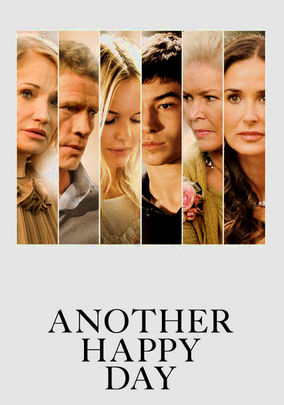
She’s a genius, so nobody requires her to be a decent human being (which, if it had ever happened, could have done her some good). People help her, and she’s sometimes grateful, but she’s not seen doing anything for anyone else - other than upping her adoptive mother’s request for a 10 percent agent’s commission to 15.Įveryone’s interested in Beth because she’s talented and becomes famous (being very slim and pretty doesn’t hurt), not because she’s especially warm or kind or compassionate or often even polite. Beth is supremely gifted and supremely selfish (yes, in life, the two often go together). Everyone has their take on it, but to me, it’s ultimately a story about the uses and abuses of celebrity. But, alone among all peoples, Christians are told not to be sensitive about such things.įrankly, I find it to be lazy writing, taking cheap shots rather than really using faith (or even the lack of it) as an honest story element (which isn’t the case with Lovecraft Country).Ĭritics have lavished love on The Queen’s Gambit, and it was entertaining if rather predictable (but, then, it’s a sports tale, after all). As I discussed in my last post, about today’s largely Christ-free Christmas movies, I could use the language of the woke wags among us and call this cultural appropriation. So, again, writers, directors or whomever, don’t know the first thing about Christianity but love to use its trappings when convenient. The soundtrack for that is the orphan girls in chapel, singing chant in Latin - in a Protestant orphanage in the South. She hands back a statement they wrote for her (we never hear the contents), rejecting it as “f-ing nonsense.”īut, back in the episode with the janitor’s funeral, Beth revisits the orphanage and the basement. That’s emphasized when Beth rejects money from a Christian group looking to piggyback some evangelization on her trip to Moscow for a chess tournament. When the janitor dies many years and episodes later, Beth attends his apparently Episcopalian (or Methodist or Lutheran) funeral with her long-lost orphanage bestie, Jolene (Yale School of Drama grad Moses Ingram), and it’s obvious that neither girl is a believer. Instead, her religion is chess, taught courtesy of a reclusive janitor (Bill Camp). The faith, though, fails to penetrate Beth at all. I don’t know what real orphanages were like in the ’50s, but as fictional ones go, this one’s not bad. It does dole out tranquilizers to keep the girls in line (probably lots of places like this did), but there are no Dickensian instances of mistreatment or abuse.

The orphanage Beth goes to at the age of eight is an obviously Protestant Christian one. It also achieves the very difficult task of making a board game both thrilling and enthralling to more than just the people playing it. So, the thing looks great (especially Beth’s endlessly perfect winged eyeliner).

With her pursed lips and enormous wide-set eyes, Taylor-Joy has a unique look, and, after her character sheds an initial dowdiness, is exquisitely costumed and coiffed in high ’60s style (the show also highlights ’60s music, which remains fresh and vibrant today). Anya Taylor-Joy stars as Beth, a traumatized, socially awkward Kentucky girl orphaned (in a likely murder/suicide attempt by her brilliant but unhinged mother) in the 1950s, who grows up to be a sleek, stylish, substance-abusing chess champion in the 1960s.Īs a girl who began playing chess as a kid, how could I resist? Based on Walter Tevis’ novel (so NOT a true story), The Queen’s Gambit is handsomely produced and highly stylized - much like Taylor-Joy’s last project, a delightful, mannered, candy-colored feature-film adaptation of Jane Austen’s Emma. The Queen’s Gambit is the hot binge du jour, so I checked it out. (WARNING: PLENTY O’ SPOILERS) What is The Queen’s Gambit? In this post, I’ll start with the Netflix one (click here to see what I had to say on Lovecraft Country). I watched out of curiosity and wasn’t expecting either to be about faith, but both included it. But that wasn’t the case with two recent “prestige TV” series: Netflix’s The Queen’s Gambit and HBO’s Lovecraft Country.


 0 kommentar(er)
0 kommentar(er)
